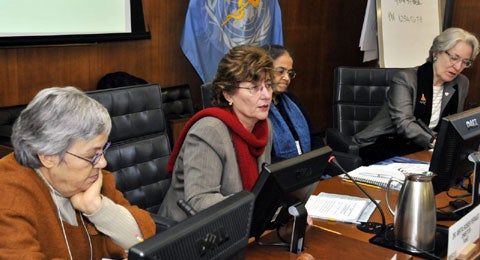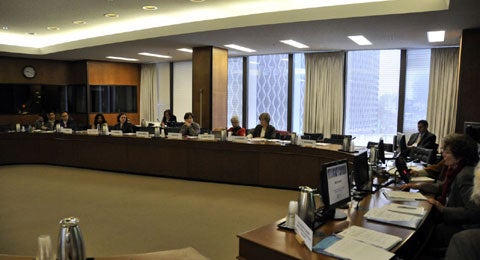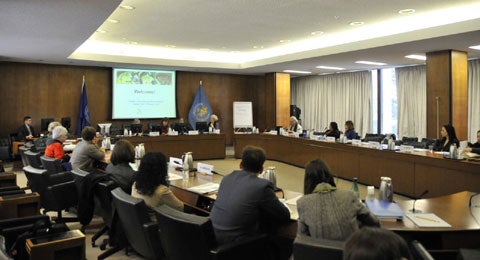
 Experts on gender and health are meeting at the Pan American Health Organization (PAHO) in Washington, D.C., this week to discuss ways of monitoring progress toward greater gender equality in health plans and programs in PAHO member countries and in PAHO itself.
Experts on gender and health are meeting at the Pan American Health Organization (PAHO) in Washington, D.C., this week to discuss ways of monitoring progress toward greater gender equality in health plans and programs in PAHO member countries and in PAHO itself.
Washington, D.C., 22 February 2011 - Experts on gender and health are meeting at the Pan American Health Organization (PAHO) in Washington, D.C., this week to discuss ways of monitoring progress toward greater gender equality in health plans and programs in PAHO member countries and in PAHO itself.
Members of a special technical advisory group (TAG) on gender equality and health will discuss past experiences in monitoring gender equality and will develop a conceptual framework and process for monitoring the Regional Plan of Action for Implementing the Gender Equality Policy approved by PAHO's Directing Council in October 2010.
That plan of action recognizes that inequalities between women and men and girls and boys contribute to inequitable health profiles and health risks. For example, women are at greater risk of being victims of violence at the hands of a domestic partner, while men face greater risks from injuries and death related to traffic accidents, homicide, suicide and substance abuse. Such differences need to be taken into account by health policies and interventions if they are to be effective.
The PAHO Plan of Action includes measures such as training on how to integrate a gender equality perspective into health policies and programs, increased participation of civil society (especially women's groups and other advocates) in policymaking and priority-setting, improved evidence for policy through disaggregation-by-sex in data collection and analysis, and the institutionalization of gender-responsive policies as well as mechanisms for monitoring progress and evaluating the effectiveness of gender interventions.
Meeting Photos (PAHO/WHO David Spitz)






